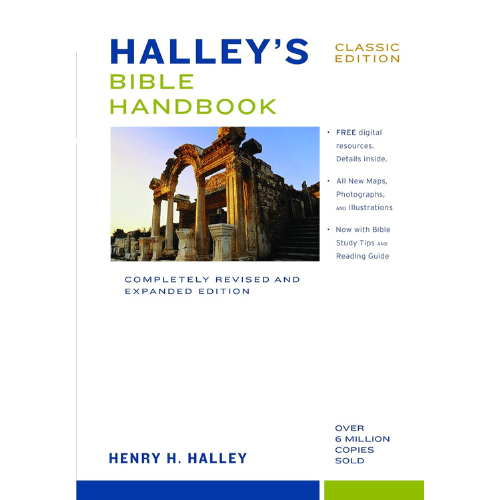Have you ever wondered how a flawed leader like David could be called “a man after God’s own heart”? The Book of Second Samuel invites us to explore this mystery, uncovering deep truths about leadership, sin, and God’s redeeming grace. As we journey through David’s reign, we’ll encounter dramatic stories of triumph, failure, and restoration.
Through these pages, we see how God’s covenant with David points to His ultimate plan for humanity. At the same time, we’re reminded that even our greatest heroes stumble, yet God remains faithful. From David’s victories over enemies to the heartbreak of family betrayal, the Book of Second Samuel shows us how God’s sovereignty weaves through it all.
Let’s delve into this fascinating narrative together. Along the way, we’ll uncover timeless insights and lessons that speak to our own lives. What can David’s story teach us about walking with God today? Let’s find out!
Writer of the book of Second Samuel
When we think about the writer of the Book of Second Samuel, we’re stepping into a fascinating world of ancient history. Traditionally, this book has been attributed to the prophet Samuel, a key figure during Israel’s transition to monarchy. However, since Samuel’s death occurs in First Samuel, scholars believe other prophets, like Nathan and Gad, contributed to the writing, as referenced in 1 Chronicles 29:29.
While the exact authorship isn’t crystal clear, the inspired content leaves no doubt about its divine origin. This collaborative effort reminds us that God often uses multiple voices to tell His story. Additionally, the consistent themes and historical accuracy show the hand of careful record-keeping.
As we read, we can sense the deep spiritual insight of the writers. They not only recount events but also highlight God’s purpose and presence. Isn’t it incredible how their words continue to guide us today? The Book of Second Samuel is more than a historical account; it’s a powerful testimony of God’s ongoing work through human lives.
Halley’s Bible Handbook, Classic Edition
The bestselling Bible handbook of all time with millions of copies sold, the Halley’s Bible Handbook makes the Bible’s wisdom and message accessible to everyone.
Date Written
Pinpointing the exact date for the Book of Second Samuel can feel like piecing together a fascinating puzzle. Most scholars estimate it was written between 930 and 722 BCE. This period aligns with the early days of the divided monarchy or shortly before. Historical references and the book’s literary style offer us valuable clues.
While the events themselves occurred during David’s reign (around 1010–970 BCE), the writing likely came later. This timing allowed for reflection and careful documentation of these pivotal moments in Israel’s history. The detailed accounts of David’s reign suggest the writers had access to official records or oral traditions.
Interestingly, this was a time when Israel was grappling with significant transitions, including leadership and covenantal identity. The writers seemed keen on preserving these stories to remind future generations of God’s faithfulness. Isn’t it amazing how these ancient writings have endured through centuries?
As we study the Book of Second Samuel, we can appreciate the effort to capture not only history but also timeless spiritual truths. This book continues to resonate with us today, connecting us to God’s work across time. What a reminder of His enduring presence and purpose!
To Whom Written
The Book of Second Samuel was originally written to the Israelites, serving as both a historical record and a spiritual guide. As a nation transitioning through major changes, they needed reminders of God’s faithfulness and His covenant with them. The book offers a clear account of David’s reign, showing how God works through leaders to fulfill His plans.
While it was directed to Israel, the message reaches far beyond its original audience. Through its stories, we learn about God’s character, His justice, and His mercy. For those of us seeking to understand His plans and purposes, the Book of Second Samuel provides timeless lessons.
It’s not just about history—it’s about what that history teaches us. By exploring David’s successes and failures, we’re encouraged to reflect on our own lives. Isn’t it amazing how a book written so long ago still speaks directly to our hearts?
Whether we’re looking for leadership lessons, inspiration for repentance, or reassurance of God’s faithfulness, this book has something to say to all of us. It reminds us that God’s plans are bigger than any single moment, person, or nation. What an incredible gift for every generation!
Purpose of the Book of Second Samuel
The Book of Second Samuel has a powerful purpose that speaks to both history and our spiritual lives. First, it documents King David’s reign, showing how this foundational era shaped Israel’s identity. David’s leadership was a turning point, uniting the nation and establishing Jerusalem as its spiritual center.
Beyond history, this book emphasizes God’s covenant with David—a promise with Messianic implications that pointed directly to Jesus. Isn’t it amazing how God’s plans unfold over time? This covenant reminds us that His promises are unchanging and eternal.
The Book of Second Samuel also teaches us about the consequences of sin. David’s failures, like his sin with Bathsheba, remind us of the gravity of disobedience. Yet, his heartfelt repentance demonstrates God’s mercy and the importance of returning to Him.
Finally, the book highlights God’s faithfulness and sovereignty. Even when David or Israel faltered, God’s plans remained on track. It’s a comforting reminder that He is in control, no matter what we face.
As we read, we’re drawn into a story that’s both ancient and deeply personal. This book invites us to trust God’s promises, seek His forgiveness, and live with faith in His perfect plan.
Historical Context of the Book of Second Samuel
The Book of Second Samuel transports us to a pivotal moment in Israel’s history—the transition to a united monarchy under David. During this time, the nation experienced both significant growth and intense challenges. David’s leadership brought political consolidation, uniting the tribes into a single, cohesive kingdom.
One of David’s major achievements was establishing Jerusalem as Israel’s capital. Not only did it become the political center, but it also served as the spiritual heart of the nation. With the Ark of the Covenant brought to Jerusalem, the city symbolized God’s presence among His people.
Yet, this era wasn’t without its struggles. While David’s military victories expanded Israel’s borders, internal conflicts also arose. Family betrayals, like Absalom’s rebellion, and the consequences of David’s personal sins brought heartache and turmoil.
Despite the challenges, God’s sovereignty was evident throughout these events. He worked through David’s triumphs and failures to fulfill His promises. As we study the Book of Second Samuel, we can see how God used this period to prepare Israel—and ultimately the world—for His redemptive plan. Isn’t it amazing how these ancient events still shape our understanding of God’s faithfulness today?
The New Strong’s Expanded Concordance
The best concordance for word study! This exclusive new edition of a legendary classic puts generations of biblical research at your fingertips.
Key Themes in the Book of Second Samuel
The Book of Second Samuel is packed with rich themes that reveal God’s character and His relationship with His people. Let’s explore these key ideas that make this book so meaningful for us today.
God’s Covenant with David
One of the central themes is God’s covenant with David. This promise of an eternal kingdom through David’s lineage points directly to Jesus, the Messiah. Isn’t it incredible how God’s plan unfolds across generations? This covenant reminds us that God is faithful to His promises, even when we falter.
The Sovereignty of God
Throughout the book, we see God’s sovereignty at work. He orchestrates events and raises leaders according to His purpose. Whether through victories in battle or personal challenges, God’s control over nations and individuals is undeniable. This theme reassures us that no situation is beyond His power.
Sin and Repentance
David’s life is a profound example of how sin impacts even the most faithful. His sins, like his affair with Bathsheba and the resulting fallout, bring painful consequences. Yet, David’s genuine repentance shows us the beauty of God’s mercy. We’re reminded that no sin is too great for God’s forgiveness when we turn back to Him.
Leadership and Consequences
David’s reign offers valuable lessons about leadership. His courage and faith united a nation, but his missteps, like the census and his family struggles, reveal the weight of leadership’s responsibilities. This theme encourages us to lead with humility and seek God’s guidance in all things.
God’s Justice and Mercy
The Book of Second Samuel beautifully illustrates God’s balance of justice and mercy. David experiences both the consequences of his actions and the unrelenting grace of God. In Israel’s history, we see how God’s justice upholds righteousness, while His mercy offers hope and restoration.
As we reflect on these themes, we see that the Book of Second Samuel isn’t just a historical account—it’s a mirror for our own spiritual journey. It shows us that God’s promises are eternal, His sovereignty is absolute, and His mercy is boundless. Together, these lessons inspire us to trust in God’s plan and draw closer to Him, no matter where we are in life. What an incredible gift of wisdom and encouragement!
Major Events/Stories
The Book of Second Samuel is filled with remarkable stories that highlight David’s reign and God’s work through his life. Each event offers lessons about leadership, faith, and God’s sovereignty. Let’s walk through some of the major events that shape this incredible narrative.
David Becomes King
The story begins with David’s rise to power after King Saul’s death. First, he is anointed king over Judah, and later, all Israel (2 Samuel 1-5). This period is marked by political struggles as David consolidates his rule. It’s inspiring to see how God fulfills His promise to make David king, even through adversity.
The Capture of Jerusalem
David’s military leadership shines as he captures Jerusalem, establishing it as Israel’s political and spiritual capital (2 Samuel 5). This move not only unifies the nation but also symbolizes God’s presence with His people. Jerusalem becomes the City of David, a pivotal place in biblical history.
The Ark of the Covenant Returns
Bringing the Ark of the Covenant to Jerusalem is one of David’s most significant acts (2 Samuel 6). Although the journey has challenges, including Uzzah’s death, David’s joy and reverence for God are evident. This event reminds us of the importance of honoring God’s presence in our lives.
The Davidic Covenant
In 2 Samuel 7, God makes a covenant with David, promising that his lineage will endure forever. This promise lays the foundation for the Messianic hope fulfilled in Jesus Christ. It’s incredible to see how God’s eternal plan begins to unfold through David’s family.
David’s Sin with Bathsheba
One of the most sobering events in the Book of Second Samuel is David’s sin with Bathsheba (2 Samuel 11-12). His adultery, followed by an attempt to cover it up, leads to devastating consequences. However, David’s repentance, captured in Psalm 51, reveals God’s mercy and the power of genuine contrition.
Absalom’s Rebellion
Family betrayal marks one of the darkest chapters of David’s life (2 Samuel 13-19). Absalom, David’s son, leads a rebellion against him, resulting in heartbreak and loss. Despite the pain, David’s faith remains steadfast, and this story reminds us of the cost of sin and God’s ability to restore.
Census and Plague
In 2 Samuel 24, David’s decision to take a census brings judgment upon Israel. God sends a plague, but David’s repentance and offering lead to mercy. This story underscores the importance of humility and trusting in God’s provision rather than human strength.
The Book of Second Samuel is more than a collection of events; it’s a testament to God’s faithfulness. Each story points us toward His justice, mercy, and ultimate plan of redemption. As we reflect on these accounts, we’re reminded of the power of repentance, the cost of sin, and the hope we have in God’s eternal promises. Together, these stories inspire us to trust in His sovereignty and grace.
Theological Contributions
The Book of Second Samuel offers profound theological insights that deepen our understanding of God’s character and His redemptive plan. Through its events and themes, we uncover truths that resonate across the Old and New Testaments.
Messianic Foreshadowing
One of the most significant contributions is the Davidic Covenant (2 Samuel 7), which sets the foundation for understanding Jesus as the promised Messiah. God’s promise that David’s lineage would endure forever points directly to Christ, the eternal King. Isn’t it amazing how this ancient covenant reveals God’s plan for salvation? This foreshadowing reminds us of God’s faithfulness to His promises, spanning generations.
God’s Holiness and Justice
Throughout the book, we see God’s holiness and justice in action. Even a beloved king like David is not exempt from judgment. His sins, such as the affair with Bathsheba, bring severe consequences. However, these stories highlight that God’s justice is always paired with mercy, showing His perfect balance of both.
Repentance and Forgiveness
David’s life exemplifies the power of repentance and forgiveness. His heartfelt prayers, such as those found in the Psalms, demonstrate a genuine relationship with God. Even after failure, David’s repentance restores him, reminding us that God’s mercy is greater than our mistakes.
The Nature of Leadership
The Book of Second Samuel provides a model of godly leadership—though imperfect. David’s faith, courage, and reliance on God inspire us, even as his failures teach us valuable lessons. We’re reminded that true leadership comes from seeking God’s will above all.
These theological contributions make the Book of Second Samuel timeless. They challenge us to trust God’s promises, reflect on His justice and mercy, and embrace His forgiveness in our own lives.
Special Consideration
The Book of Second Samuel offers a unique and thought-provoking view of King David. He is portrayed both as “a man after God’s own heart” and as a deeply flawed individual. This dual portrayal provides a powerful, nuanced understanding of faith, grace, and God’s redemptive work in human lives.
David’s story reminds us that God uses imperfect people to fulfill His perfect plans. While David’s faith and devotion are inspiring, his failures, like his sin with Bathsheba, reveal the consequences of disobedience. Yet, through repentance, David shows us how God’s mercy can restore even the most broken situations.
Additionally, this book bridges the Old and New Testaments. David’s life and the Davidic Covenant foreshadow Jesus, the ultimate King and Redeemer. Understanding these connections enriches our study of Scripture, helping us see how God’s plan unfolds across time.
As we reflect on the Book of Second Samuel, we are reminded of God’s faithfulness, justice, and unending grace. These lessons continue to inspire us today.
Final Thoughts on the Book of Second Samuel
The Book of Second Samuel is so much more than an ancient historical account—it’s a living testimony of God’s work. Through its stories of leadership, faithfulness, sin, and repentance, we see God’s character revealed in profound ways. From David’s triumphs to his failures, this book reminds us that God’s plan is unshakable, even when human leaders falter.
Moreover, the Davidic Covenant shines brightly as a beacon of hope, pointing directly to Jesus Christ, the eternal King. Isn’t it incredible how God’s promises span generations, reminding us of His faithfulness? This covenant not only shaped Israel’s history but also lays the foundation for our salvation today.
As we reflect on this rich narrative, we’re invited to trust in God’s sovereignty and seek Him wholeheartedly in every area of our lives. Despite our flaws, God’s mercy and grace are always available to restore us.
The Book of Second Samuel challenges us to grow in faith, live with integrity, and embrace God’s redemptive plan. Let’s take its timeless lessons to heart and allow them to transform our walk with Him. What a gift to learn from this incredible book!
Frequently Asked Questions (FAQ) about the Book of Second Samuel
1. What is the main theme of the Book of Second Samuel? The main theme of the Book of Second Samuel is God’s sovereignty in establishing His kingdom through David. It highlights leadership, sin and repentance, the Davidic Covenant, and God’s faithfulness to His promises, ultimately pointing to Jesus Christ.
2. Why is the Davidic Covenant important in the Book of Second Samuel? The Davidic Covenant, found in 2 Samuel 7, is significant because it promises an eternal kingdom through David’s lineage. This covenant foreshadows the coming of Jesus, the Messiah, and underscores God’s faithfulness across generations.
3. What lessons can we learn from David’s life in the Book of Second Samuel? David’s life teaches us about the consequences of sin, the importance of repentance, and God’s mercy. It also demonstrates qualities of godly leadership and the significance of seeking God’s guidance in all things.
4. How does the Book of Second Samuel connect to the New Testament? The Book of Second Samuel connects to the New Testament through the Davidic Covenant, which points to Jesus as the fulfillment of God’s promise for an eternal King.
5. Who was the audience of the Book of Second Samuel? Originally, the Book of Second Samuel was written for the Israelites, providing a historical record and spiritual guidance. Its timeless lessons, however, continue to speak to all believers today.





